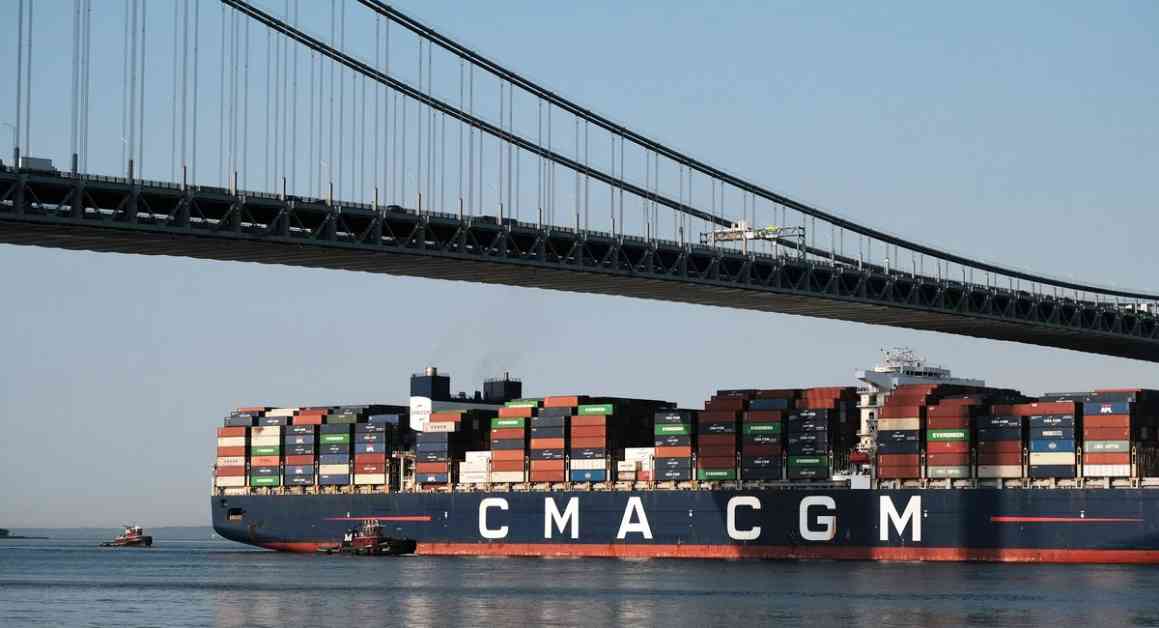Seaport Strike Threatens NYC Wine Prices and Fresh Produce Supply
A potential longshoremen’s strike at seaports along the East Coast is looming large, posing a significant threat to New York City’s supply chains. Experts are warning that the labor action could result in a spike in wine prices and the spoilage of hundreds of tons of fresh produce stranded on ships unable to dock at the harbor. This strike, if it materializes, would be the first of its kind in almost 50 years and could bring freight operations to a standstill at most maritime ports from Maine to the Gulf of Mexico.
The International Longshoremen’s Association has issued a warning that thousands of port workers are prepared to walk off the job at midnight on Monday if a new agreement is not reached with the United States Maritime Alliance, which represents shipping companies. The demands of the longshoreman’s union include higher wages and better job protections amidst the increasing automation in the industry.
Economic analysts have projected potential losses of up to $5 billion per day nationwide in the event of a strike. The Port of New York and New Jersey, one of the busiest seaports in the United States outside of California, is already preparing for a phased shutdown starting at 5 p.m. on Monday in anticipation of the walkout.
Impact on Wine Prices and Fresh Produce
If the strike proceeds, 35 ships bound for the New York and New Jersey seaports will be forced to anchor offshore under the supervision of the U.S. Coast Guard. These ships carry a significant amount of fine wine and spirits that supply shops and restaurants across the city, along with perishable fresh produce that is at risk of spoilage, according to industry experts.
John Acompora of E. Armata Fruit & Produce expressed concerns about the impact on the fruit supply, stating that the refrigerated units on the ships can only sustain the produce for a limited time. Citrus fruits like lemons, oranges, and clementines, as well as pineapples and bananas, are among the items that could be affected by the strike. The refrigeration units rely on fuel to operate, making it crucial for the ships to be able to dock and unload their cargo promptly.
Tommy Coperine, working with importer Frederick Wildman and Sons, highlighted the potential disruption to the city’s supply of wine and spirits. He noted that while a short strike may not have a significant impact, an extended one could lead to shortages, particularly for lower-priced products. Coperine emphasized that prolonged strike action could result in gaps on store shelves, affecting the availability of certain wines to consumers.
Governor’s Response and Preparations
Governor Kathy Hochul has urged New Yorkers not to panic in light of the impending strike. She assured that emergency preparations were underway to mitigate disruptions to essential goods, particularly medications that are primarily flown into the city. Hochul emphasized the importance of avoiding panic buying at grocery stores, urging residents to remain calm and not stockpile goods unnecessarily.
Hochul acknowledged the potential challenges posed by the strike, particularly for shipments of cars and semiconductors. She emphasized the need for effective coordination and response measures to minimize the impact on the state’s economy and supply chains. Hochul reassured the public that officials were working diligently to address the situation and ensure the continuity of essential services.
The United States Maritime Alliance has taken legal action by filing an unfair labor practice charge against the International Longshoremen’s Association to compel them back to the bargaining table. The union, on the other hand, has refrained from providing individual interviews to the press, maintaining a unified stance in the negotiations.
President Joe Biden has indicated that he will not invoke the Taft-Hartley Act to force the longshoremen back to work, opting instead to allow for continued negotiations between the parties. The outcome of these discussions will have far-reaching implications for the flow of goods and commodities through the affected seaports, affecting businesses and consumers alike.

